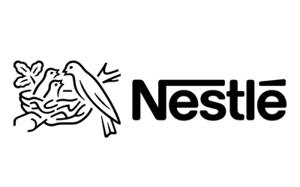.png?width=300&name=Nestle%20Factory%20%20(1920%20%C3%97%201200%20px).png)
Nestlé
Nestlé’s Journey to Unified Data and Operational Efficiency with MADCAP

The Challenge
Nestlé was managing milk procurement across 25 dairy-producing countries, each with its own localized system. This approach led to high maintenance and license costs, operational difficulties, and a lack of real-time visibility into global operations.
Solution
Nestlé partnered with MADCAP to implement the Global Milk Solution (GMS), a unified platform that centralized data in real-time from all markets. This solution streamlined milk supply chain operations, improved data accuracy and accessibility and enabled faster, more informed decision-making across the business.

"In our increasingly data-driven world, the partnership with GMS establishes a solid data foundation for supply chain management, adeptly addressing a diverse array of local requirements"
Navigating fragmented systems and high costs
In 2014, Nestlé relied on 22 local systems across 25 dairy-producing countries. Each market operated its customised platform, leading to high maintenance and inefficiency in reporting.
As one Nestlé executive recalls, “We were operating in silos. Each country had its local solution, and getting a clear view of our operations felt difficult.”
Why MADCAP was the right fit
Recognizing the opportunity for improvement, Nestlé set out with a clear vision: to harmonize and create granular traceability of milk from farm to factory globally. Their goal was to create a unified platform to streamline operations, reduce costs, and provide accurate, real-time data. They sought a partner capable of delivering both flexibility and scalability.
Out of their local systems and solutions in the market, MADCAP stood out as a application, that was scalable and after joint development, the solution became capable of scaling to accommodate diverse market requirements, combining essential features for their global operations with the local flexibility required.
MADCAP’s Global Milk Solution
In 2014, Nestlé partnered with MADCAP to launch the Global Milk Solution (GMS), a centralised platform to seamlessly link data from farms, haulers, and factories, ensuring smooth operations across all markets.
By the end of 2024, the GMS implementation was nearly complete, effectively managing data from over 150,000 farms. With MADCAP's 24/7 support, GMS quickly became an integral part of IT backbone of Nestlé’s milk procurement operations.
Karishma, MADCAP’s project manager, shared, “We wanted the implementation to be a nonevent for our markets. The goal was to integrate smoothly with their existing workflows while delivering the standardisation that the global team required.”
Accurate, accessible data and enhanced visibility
With GMS, Nestlé gained access to real-time, accurate primary data across all markets. Previously struggled with fragmented systems that required manual data gathering from each country.
Tibor Motyovszki, Senior IT Product Manager at Nestlé, noted, “Before GMS, obtaining critical data like Volume, Fat or Protein meant reaching out to each local system individually. Now, we can access it all with a single click thanks to our standard solution and the integrations we accomplished.”
This efficiency allows Nestlé to implement changes, such as payment formula adjustments, without coordinating with individual local system providers.
“We can roll out updates instantly across all markets, which significantly speeds up our operations,” Tibor added, highlighting the benefits of GMS.
Lasting impact and positive outcomes
A decade into the partnership, Nestlé has enjoyed data simplification and operational empowerment through GMS. The solution has not only streamlined procurement but also advanced sustainability initiatives by contributing to GHG emission calculation with accurate and reliable information about volume, fat and protein.
Building trust and advocating for change
With 1,500 Nestlé employees utilising GMS worldwide, feedback has been overwhelmingly positive. A recent internal survey revealed a Net Promoter Score (NPS) of 35.6 among the 17 surveyed markets, reflecting high user satisfaction.
Desley, CEO of MADCAP, noted, “Markets that were initially resistant to change have become some of our strongest advocates.”
Continuous improvement and innovation
Looking forward, Nestlé is committed to further enhancing its milk procurement processes, focusing on continuous automation and advanced data analytics to drive efficiencies, improve traceability, and reinforce sustainability goals.
